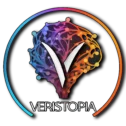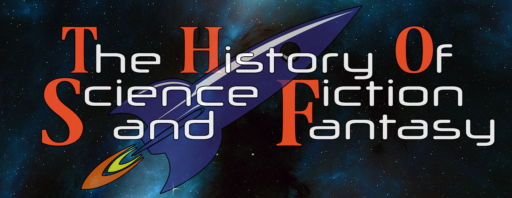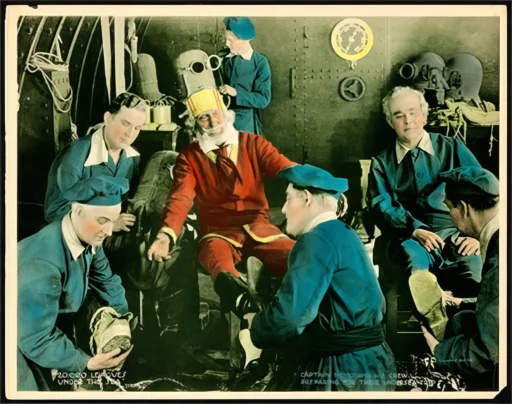Where better to start than at the very beginning with the origins of these intertwined genres. What we now consider fantasy and science fiction started in the 19th century but it did not spring fully formed from these writers’ imaginations. Rather, they built on centuries of traditions to create their works.
Fantasy
Fantasy has been part of our fiction since storytelling began. We can see it in the Greek myths, Norse mythology, and many other places. In these stories, the gods regularly use their impossible powers to bend reality to their whim, at the expense of unfortunate humans. It is present in the Arabian Nights, and Thomas Malory’s Le Morte d’Arthur, itself inspired by earlier tellings of the Arthur myth and is present in many iconic works of literature so we can see this is an inspiration that crosses cultures and borders.

These earlier works all featured fantastic elements set in the, then, present day. They primarily focus on the fantastic impinging on the natural. In that regard, they are reminiscent of today’s urban fantasy. But they have little in common with the fantasy genre as it later became defined.
One common element in early fantastical stories is that they were written or told to teach a lesson. Fantasy creatures abound in fairytales for example. Another common feature is that the fantasy elements are accepted as real in these stories and little effort is made to explain or justify them. The fantastic and fantasy creatures much the same as ghosts and spirits. In this respect, they differ from modern works of fantasy.
Modern fantasy is directly inspired by these earlier works, but the structure that we now associate with fantasy did not arrive until the early 19th century.
Science Fiction
Unlike its cousin Fantasy fiction, which can point to many great works of literature as source material, the roots of science fiction lie much closer to the present day. It is a junior branch of fiction and did not come into being as we would recognize it until the 19th century. Even then it did not really become a defined genre of its own until the 20th century.
This isn’t as surprising as it might first appear when you consider that our culture’s ideas of what science is have changed radically over the years. We get the word science from the Latin word scientia which means knowledge. The word scientist did not appear in our vocabulary until 1833, coincidentally just about the time that science fiction blossomed. The term science fiction was fit used in 1851 (specifically in A Little Earnest Book Upon A Great Old Subject by William Wilson)
It’s also not surprising that perhaps the earliest example of proto-science fiction might be an Arabic novel called in English, Theologus Autodidactus by Ibn al-Nafis in the 13th century. Arab culture was far ahead of western Europe in science and philosophy.
The first European work that is often considered as primordial science fiction is Utopia by Thomas Moore. Written in 1516, it depicted a fictional island and its religious, political, and social customs. While not precisely science fiction as we understand it now, this method of creating a fictional society to explore philosophical issues takes a similar form to much contemporary SF. But none of these books would be recognizably science fiction to a modern reader.
If we are looking for an obvious starting point for Science Fiction as a genre then perhaps Frankenstein has the strongest claim. In his history of science fiction, Billion Year Spree, Brian Aldiss makes the claim that Mary Shelley’s 1818 novel was “the first seminal work to which the label SF can be logically attached” and who am I to argue with Aldiss? The book concerns itself heavily with science to the extent they understood the disciplines. Arguably though Frankenstein is at least straddles the line but is perhaps predominantly a gothic novel in its tone and content.

One alternative “first” has been proposed by the likes of Isaac Asimov and Carl Sagan and that is Somnium or “The Dream” by Johannes Kepler published in 1634 after the author’s death. This pre-dates Frankenstein by many years though it is far less well known. It is an odd meshing of education and entertainment using the fictional scenario of a student being transported to the moon by a daemon to present a discourse on physics and astronomy.
Neither of these firsts feels like science fiction as we expect to see it today. But things would soon change. The 1800s were a time of great scientific progress in a western culture dominated by the expansive British Empire which controlled a quarter of the world’s population. Within Britain’s sphere of influence, there were major developments occurring in mathematics, physics, chemistry, biology, electricity, and metallurgy.
Science was becoming a recognized profession for the first time, with Pasteur, Edison, and Faraday all active and hugely influential. On top of which Charles Darwin published The Origin Of The Species in 1859 and challenging our understanding of human nature itself.
Ideas and technology developed at a faster pace than ever before and perhaps in that heady culture, it was almost inevitable that the genre of science fiction would emerge as a distinct entity in the 1900s.
Discover more from Veristopia
Subscribe to get the latest posts sent to your email.





